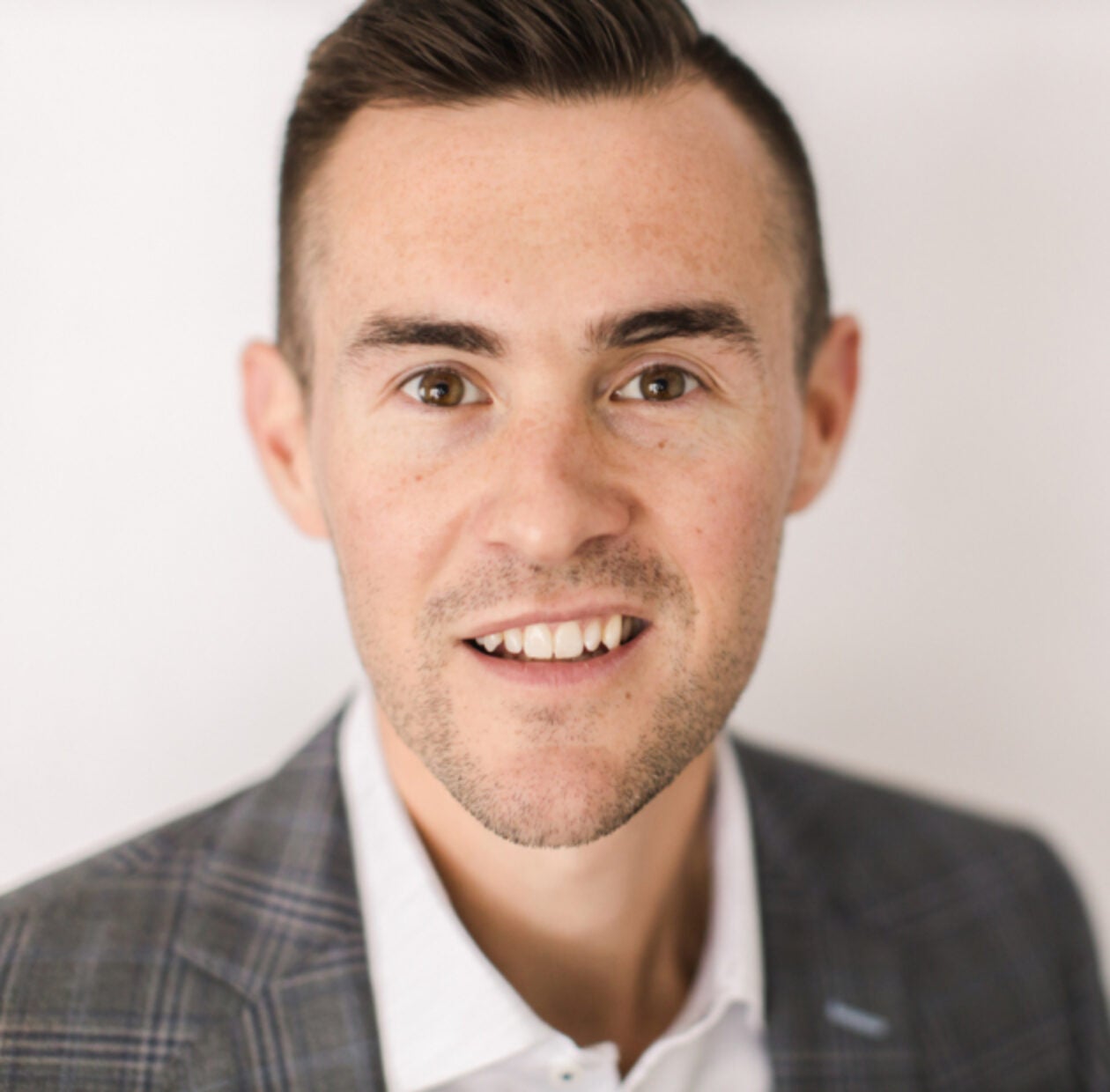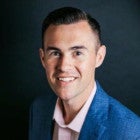Many people in the independent insurance agency space know Hanley from his time at Agency Nation and TrustedChoice.com – where he hosted podcasts, created videos, emceed Elevate conferences and much more. After leaving Agency Nation in 2018, Hanley worked at insurtech company Bold Penguin. But when a family member got sick, he took a job closer to home – as the CEO of Albany-based fitness company Metabolic.
Throughout that time, Hanley dreamed of starting his own insurance agency. Now, he’s back in the insurance world, launching his scratch agency, Rogue Risk.
We talked to him about taking risks, starting a scratch agency and why he thinks it’s important to share the process.
So, Ryan, what made you decide to start an agency?
I had been planning to start my own insurance agency for about three years. I’ve talked with thousands of insurance professionals and I’ve spoke at conferences and I’ve interviewed people. From that, I have what I believe is a model that is built for the future and that fits my personality and where I think I can be successful.
When the opportunity with Metabolic came to an end, it was like the universe was telling me, “You have to give this thing a shot or you’re going to regret it your entire life.” So instead of fighting that feeling like I had the two previous years, I relented. And Rogue Risk is the agency.
Tell us a little more about Rogue Risk – what is the model you developed?
I call it “agent optimized.” I’m marrying what I believe the best characteristics of a traditional agency are and the best characteristics of what a pure digital agency are and mashing them together to provide a classic relationship-oriented, frontline underwriting, coverage-focused agency with the tools and the experience that people are looking for today.
Why start a scratch agency rather than going to an established agency?
I’m trying to tackle this very much like a real startup where there’s going to be pivots and there’s going to be problems and there’s going to be moments where something that you absolutely believed was the right path just simply is not and you have to change. I’m OK dealing with that because I’m taking on the risk by starting this, but if I were to wedge myself into another agency, they’re going to hire me thinking I have the answers. And, if I’m being honest, I’m starting this business very much believing that I don’t have the answers, but that I’m willing to – and believe I have the capacity to – figure out what those solutions are.
What are some of the things you’ve learned so far about starting an agency?
As an outsider to the agency owner world, I kind of gave lip service to how difficult the technology aspect of business is in our industry. And it’s really, really difficult. There are just disparate systems that don’t all connect. It’s been an eye-opening experience that I did not empathize with enough until I was making these decisions on my own.
What I’ve learned from all that is to keep the technology you use as minimal as possible. You need a small collection of tools that are going to do exactly what you need them to do and nothing more.
You’re blogging and making videos about this process as you’re going through it. You’re bringing people along for the ride. What made you decide to do that?
I’ve kind of built my career on sharing and being open and vulnerable about the industry and my career. I think, in general, we need more people who share their experiences and the good and the bad and the questions.
I’ve always believed in the serendipity of giving without expectation of reciprocation. So I just try to give as much as I can.
That attitude is something we at AFTF really admire about the independent agent channel – agents are generous with their expertise and don’t view other agents as their competition.
I was just at the IAOA conference – Innovation 2020. I didn’t even make it into the sessions. I literally could not get out of the hallway, just talking to people – and I mean that in a very positive way. You just, bam, bump into the next person. You’ve known these people for 10 minutes and you’re talking about what carriers you have and how much revenue you’re doing and where it’s going. These are conversations I think that for a long time in our industry were very guarded, and now they’re freely happening in conference halls. It’s a tremendous movement in our industry.
As Gen-X and millennials move into leadership positions, I think it’s culturally more part of those generations than earlier generations. It’s so much fun to watch and be a part of.
I think there are going to be major rapid shifts in the culture of our industry as Gen-X starts to take more leadership positions. Gen-X is a very supportive generation. I feel like they’ll usher in a time of continued respect for our industry while also pushing for more openness and more connection and diversity and all these things that the industry really needs.
You’ve taken some big risks in the last few years especially – what have you learned about taking professional risks?
You have to make the next right decision. I’ve stopped worrying about 10 years from now. The next right decision for me when I left the insurance industry was exactly the decision that I made. I certainly did not want to leave the industry, but it was the next right decision that I had to make for, in that case, my family. And when that opportunity was no longer there, the next right decision for me was to start Rogue.
I’m certainly not seeking out risky stuff. But when you lean into life, that’s what tends to happen. I’ve sat back before and that didn’t work either, so I’d prefer to lean in.





Hey Ryan,
Love your story. Thought I was the only one crazy enough to start an agency from scratch. I am four and a half years in and have a staff of six. I am kind of stymied how to get my agency to the next level, but I know the answer is more technology. I would love to hear what else you are doing for social media etc. That is not my strong suite.
Take Care
Christopher Brook
Brook Insurance Associates, LLC
I started 3 independent agencies from scratch.. ( I’m slower than most!) In each case I took things that I learned that were right ideas and with that knowledge I added more things that other agents had learned and shard with me. At 72 I started my last agency from scratch and all the things that I learned from the past experiences just fell into place. In two years my wife and I went from a zero income agency to a $357,000 revenue agency. We worked by ourselves for the first 18 months and then started adding quality people around… Read more »
We started our agency from scratch 30 years ago as did many agents here in Massachusetts. Not sure the value of this information! Being at the state house here in Massachusetts I was the chief of staff in the senate and transferred over to the Governors office. They we both people businesses just like starting our agency. I can only suggest our industry is only about dealing with people. It’s being all about picking up or even better answering the phone in your office. Especially with what’s going on these days. Lot of suggestions out there from “consultants”, but my… Read more »